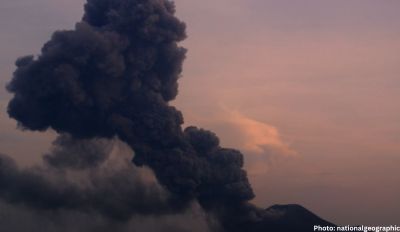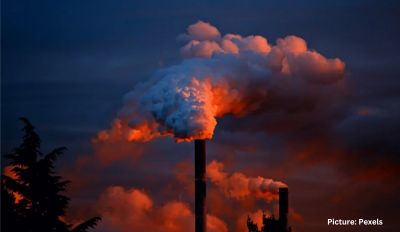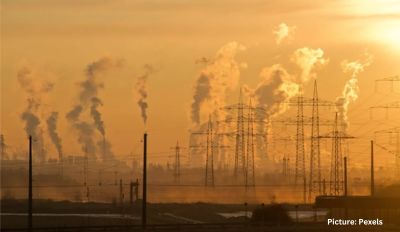The fundamental principles of survival are straightforward: humans can endure weeks without food, days without water, but only moments without air. Air stands as the cornerstone of human existence, yet what much of the global populace inhales daily is tainted.
In the 2023 World Air Quality Report, issued on Tuesday by IQAir, a Swiss company monitoring real-time air quality worldwide and issuing annual assessments since 2018, merely 10 nations or territories in the past year maintained air quality meeting the World Health Organization’s cleanliness benchmark.
IQAir relied on the average concentration of PM2.5, or particulate matter with a diameter of 2.5 micrometers or less, across cities with publicly available data as the primary indicator of air quality for each country or territory. PM2.5, a harmful constituent of air pollution stemming from various sources such as emissions from coal and oil combustion, as well as dust storms and wildfires, can infiltrate the body through the lungs and bloodstream, impacting major organs. The WHO has outlined that exposure to PM2.5 can result in cardiovascular and respiratory health issues, including strokes or lung cancer, contributing to an estimated 7 million premature deaths annually.
WHO guidelines suggest an annual mean PM2.5 concentration of no more than 5 micrograms per cubic meter (5 µg/m3). Among the 134 countries and territories assessed by IQAir, only Sweden, Finland, Estonia, Puerto Rico, Australia, New Zealand, Bermuda, Grenada, Iceland, Mauritius, and French Polynesia met this standard in 2023.
IQAir’s 2023 World Air Quality Report offers significant insights into various regions.
Asia:
Asia emerges as the most polluted region globally, with all but one of the 100 cities with the most polluted air situated there, with 83 of them located in India. These cities exceeded the WHO’s standard by at least 10 times. The Indian city of Begusarai, with over half a million inhabitants in Bihar, recorded PM2.5 levels at 118.9 µg/m3 last year, surpassing the WHO standard by 23 times.
Central and South Asia are home to the top four most polluted countries—Bangladesh, Pakistan, India, and Tajikistan—where 31% of cities reported PM2.5 levels exceeding the WHO standard by over 10 times, a proportion far surpassing any other region in the report. IQAir attributes Asia’s air pollution to various factors, including significant greenhouse gas emissions from coal-fired power plants and peat bog burning, exacerbated by weather phenomena like El Niño delaying the onset of rainy seasons, which could have mitigated PM2.5 levels.
Oceania:
Oceania, comprising Australia, New Zealand, and French Polynesia, maintained the cleanest air in 2023, with each country and territory meeting the WHO standard. The region also boasts the highest proportion, 55%, of cities adhering to the WHO standard.
Europe:
Europe witnessed the most improvement among regions, with PM2.5 levels decreasing in 36 out of 43 monitored nations. Bosnia Herzegovina remains the most polluted country in the region, although its PM2.5 levels decreased by 18% from 2022. Croatia exhibited the most significant improvement, with PM2.5 levels dropping by over 40% compared to 2022. While 39% of European cities met the WHO standard in 2022, 54% achieved this threshold in 2023.
The Americas:
North America leads as the most-monitored region, with 3,242 cities analyzed, representing 40% of the total cities in the report. Latin America and the Caribbean are expanding their air-quality monitoring network significantly, with new monitoring stations emerging in various cities and countries. In North America, Canada surpassed the U.S. in air pollution due to extensive wildfires from May to October last year. The U.S. also experienced an increase in air pollution, partly due to southward-drifting smoke from Canadian wildfires. Columbus, Ohio, ranked as the most polluted major U.S. city for the second consecutive year, while Las Vegas, Nev., claimed the title of the least polluted major U.S. city.
Africa:
Africa faces air pollution challenges compounded by a lack of data. While Benoni, South Africa, emerged as the only non-Asian city among the 100 most polluted cities globally, the continent struggles with insufficient air quality data. Despite a rapidly growing urban population, only 24 out of 54 African countries, representing 66% of the population, have adequate air quality data for inclusion in IQAir’s report. Chad, the most polluted country in IQAir’s 2022 report, was excluded due to a lack of publicly available monitoring data.
Frank Hammes, IQAir’s global CEO, emphasizes the critical role of air quality data in saving lives and prompting action. He underscores that where air quality is reported, action is taken, leading to improved air quality.











